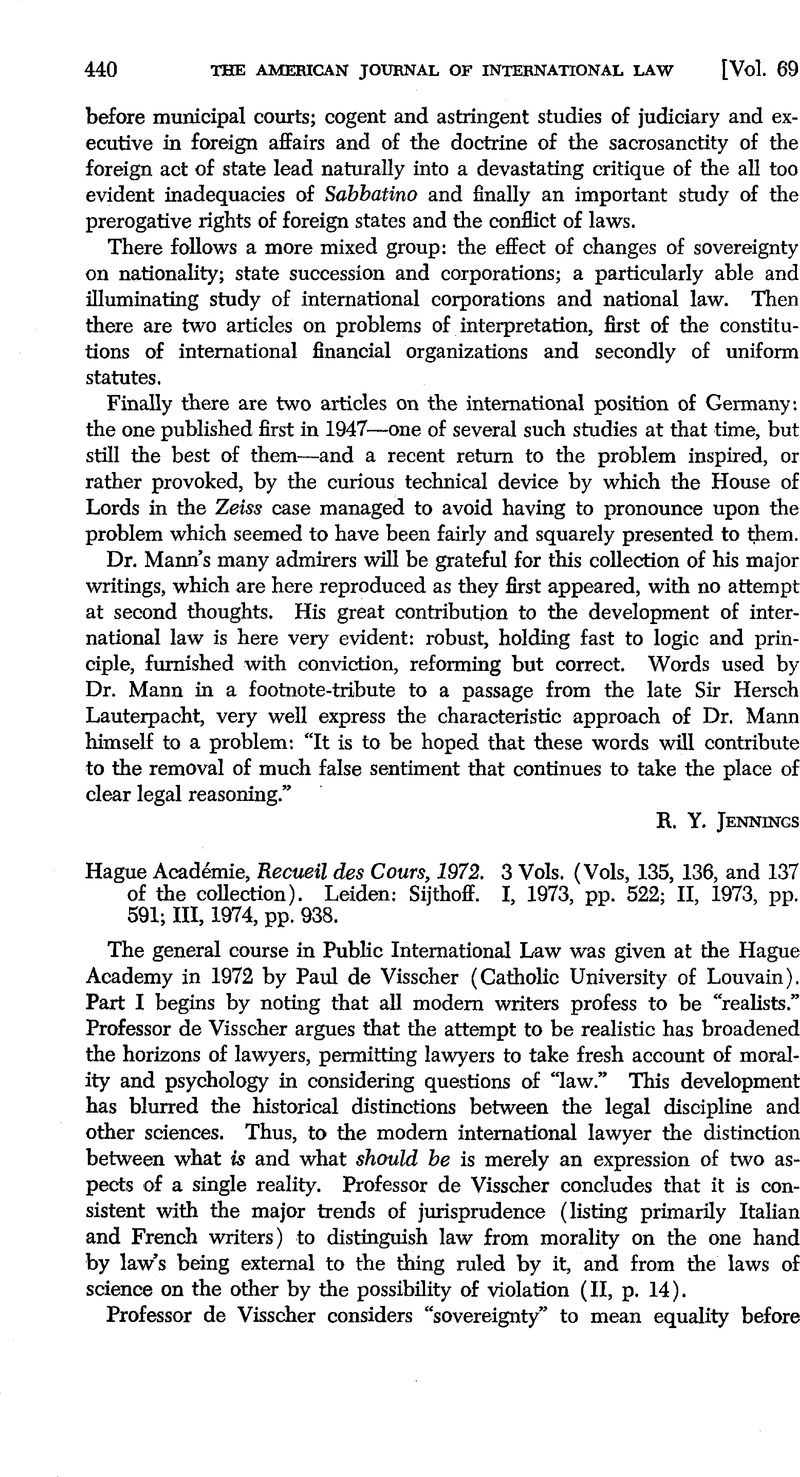Published online by Cambridge University Press: 28 March 2017

1 Waldock, , General Course on Public International Law, 106 Hague Recueil (1962, II) 1 at p. 39 Google Scholar.
2 Of course, the work of the Special Committee was in fact successfully concluded on April 12, 1974. See 13 ILM 710 (1974); see also Official Documents section infra p. 480. Most if not all of Professor Schwebel’s concerns about the limited purposes and imprecision of viable definitions of aggression remain valid.
3 Resolution 2526 (XXV), October 24, 1970; reproduced in 65 AJIL 243 (1971).
4 299 UNTS 57.
5 Another participant in the negotiation of the Declaration in its final form concluded that the factors prompting the codification of principles “ranged from nobility of purpose to a desire to engage in propaganda and included a felt need on the part of some who had not been present at San Francisco in 1945 to put their views on record. There was in addition a simple desire on the part of some to provide work for what was at the time an under-employed Legal Committee.” Rosenstock, , The Declaration of Principles of International Law Concerning Friendly Relations: A Survey, 65 AJIL 713 (1971)CrossRefGoogle Scholar. It is not really clear just where Mr. Rosenstock and Professor Šahović would disagree, if at all.